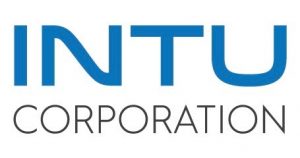New Court Filings Add Depth to Poker Massage Therapists / INTU Corporation Lawsuit
There have been more developments in the interesting class action lawsuit filed by eight former massage therapists employed as third-party contractors by INTU Corporation, one of several suppliers of massage therapists at major poker tournaments and in prominent casinos in Las Vegas. Each side in the case has submitted a major filing in the case, in which the therapists allege a raft of labor-law violations against INTU.
The latest action centers on a counterclaim filed by INTU against the eight independent therapists last month, in which counsel for INTU illogically alleged that the eight therapists had illegally divulged “trade secrets” and thus damaged INTU. However, a fuller read of the allegations showed that the supposed trade secrets were (a) the rates charged by INTU to its customers, meaning poker players and other casino gamblers, and (b) the nature of INTU’s compensation agreements with its third-party-contractor employees. Neither appears to be a protected trade secret under federal law, and the filing quickly drew a motion to dismiss from the lead attorney representing the eight, veteran gaming attorney Maurice “Mac” Verstandig.
 The two latest filings in the case continue this one-off battle while adding backstory to the legal tale. On February 20, INTU Corporation’s attorney, Nancy Babas of the adroitly-named Payne & Fears LLP legal firm, filed a response memorandum to the massage therapists’ motion to dismiss. Just five days later, Verstandig and Ronald D. Green of Las Vegas’s Randazza Legal Group, PLLC, filed a reply to that opposition from INTU to dismiss the counterclaim.
The two latest filings in the case continue this one-off battle while adding backstory to the legal tale. On February 20, INTU Corporation’s attorney, Nancy Babas of the adroitly-named Payne & Fears LLP legal firm, filed a response memorandum to the massage therapists’ motion to dismiss. Just five days later, Verstandig and Ronald D. Green of Las Vegas’s Randazza Legal Group, PLLC, filed a reply to that opposition from INTU to dismiss the counterclaim.
The response memo filed by INTU in continuing support of its counterclaim adds more allegations to the mix, though those allegations appear as suspect as the previous batch. Here’s an excerpt from the February 20 filing on behalf of INTU, which describes its version of the series of events leading up to the therapists’ lawsuit:
INTU had been under contract with MGM Resorts International, Inc. (“MGM”) to provide massage services at the Bellagio casino poker room floor in Las Vegas since 2004. [] Each of the Plaintiffs performed massage services for INTU at Bellagio pursuant to the Agreements. [] In November 2018, MGM informed INTU that it was cancelling its contract with INTU for services at the Bellagio, effective on December 7, 2018, and instead would contract with Professional Massage, Inc. (“PMI”). Bellagio informed INTU that PMI would be given a 90-day trial period, and that INTU would have the opportunity to renegotiate its contract for the Bellagio after the trial period if its patrons at the Bellagio were not satisfied. INTU was confident that it would be able to successfully re-negotiate its contract for the Bellagio because many of Bellagio’s regular poker-room patrons had come to expect that the Bellagio would provide massage services from INTU’s team of independent contractors. [] Indeed, many of the regular patrons of Bellagio would specifically request services from one or more of INTU’s independent contractors.
During PMI’s 90-day trial period at the Bellagio, INTU’s independent contractors continued to work for INTU at the other properties at which INTU provides services, and were permitted to continue to work for any of the other massage services company, as long as they were not servicing one of INTU’s customers through another company. However, each of the Plaintiffs breached the terms of the Agreements by providing services at the Bellagio for PMI (notably, not as employees, but as independent contractors for PMI). [] For this reason, INTU was not able to successfully renegotiate its contract because the Bellagio was able to receive the same services from PMI that it received from INTU, without sacrificing the relationships that its patrons had developed with INTU’s contractors at that property. []
This is exactly the harm to INTU’s business that the noncompete agreements were meant to prevent. INTU is a service provider. Thus, the quality, qualifications, and reliability of the professionals it sends to its clients are integral to its business model and to the goodwill it has built with its customers over many years. [] As a result of Plaintiffs breaches of the noncompete agreements, INTU was unable to successfully renegotiate its contract with Bellagio. []
Additionally, as result of Plaintiffs’ breaches, PMI began marketing to other clients of INTU and, upon information and belief, has represented to them that PMI can provide them with the same massage services using INTU’s same independent contractors at properties that those contractors serviced for INTU. INTU has lost at least one other contract with another property as a result of Plaintiffs’ breaches. Additionally, INTU has reason to believe that Plaintiffs have disclosed INTU’s confidential information, including its rate structure (i.e., the profit-sharing splits between INTU and its independent contractors) to PMI, INTU’s customers, and INTU’s competitors in breach of the non-disclosure agreements. [] Plaintiffs have certainly disclosed this confidential information in their complaint on file in this action. INTU contends that the disclosure of this information has undermined its ability to renegotiate the Bellagio contract and to maintain its contracts with its other clients.
Despite INTU’s claim that its contracts with its third-party contractors included “very narrow noncompete agreements”, the above excerpt belies that claim. Non-competes are designed to prevent the obtainment of valuable trade information by rival companies and to support the continuation of ongoing contractual relationships with corporate clients, neither of which appears to apply here.
Instead, the supposed trade secrets (such as how much the therapists earned) are almost certainly not protected, INTU’s claims notwithstanding, and the action that drew the lawsuit from the therapists occurred after INTU had already botched its contract with the Bellagio, most likely through executive mismanagement (since the casino sought to re-hire many of the therapists themselves).
Then, because the Bellagio switched providers, it appears from a read of the court documents that INTU Corporation may have tried to punish the Bellagio and other MGM properties by threatening the properties not to hire a lengthy list of INTU-contracted therapists. Indeed, the situation could be interpreted as INTU attempting to hold hostage these therapists as a means to force the Bellagio back into a contractual relationship, though after subsequent developments, that likely had the proverbial snowball’s chance in hell of occurring.
Also noteworthy is the nonspecific claim that, “During PMI’s 90-day trial period at the Bellagio, INTU’s independent contractors continued to work for INTU at the other properties at which INTU provides services… .” Nowhere does it detail whether any of the therapists who are party to the suit were among those working elsewhere for INTU, or if any of them did, whether that occurred before or after the discovery of the December letter from INTU to the Bellagio that attempted to enforce the disputed non-compete.
INTU’s latest also accuses counsel for the plaintiffs as making false statements, then offers but one: “For example, contrary to Plaintiffs’ assertion, INTU has not terminated any of the independent contractor Agreements with any of the Plaintiffs.” However, attempting to enforce a non-compete at the property (Bellagio) where the therapists worked has the same ultimate effect, and besides, the next line decries that importance anyway: “None of these statements are necessarily relevant to Plaintiffs’ motion to dismiss, but they do mischaracterize the facts of this case and paint INTU in an unfavorable light before the Court.” Not to similarly belabor the obvious, but that’s what trial attorneys do.
As expected, plaintiffs’ counsel quickly filed their own response to the newly-offered claims. The introduction from the February 25 responseboils down the latest INTU claims to three basic points, then neatly exposes the weaknesses of the arguments:
The Plaintiffs have sought dismissal of the Counterclaim on three separate grounds: (i) the pleading does not sufficiently allege damages requisite to a claim for breach of contract; (ii) the “trade secret” upon which the Counterclaim is based cannot, as a matter of fact and law alike, be a trade secret; and (iii) the noncompete agreement giving rise to the Counterclaim is facially void. The Plaintiffs will forbear from rehashing the intricacies of each such contention herein, but note, as set forth infra, the Opposition fails to overcome these issues.
The Opposition first falters because in rationalizing damages, the Defendant’s brief relies on a series of allegations that are not made in the Counterclaim itself. A “90-day trial period” has suddenly become a seemingly core component to the Defendant’s case, yet it is one never mentioned by the Plaintiffs in their pleadings, never mentioned by the Defendant in the Counterclaim and, in point of fact, wholly unknown to undersigned counsel until a review of the Opposition was first had.
The Opposition next fails because its effort to defend a uniform commission-based wage scheme, as a trade secret, ignores the temporal and logistical impossibilities of such. Simply stated, if everyone receives the same commission, and the commission is spelled out in the agreement presented to prospective employees at the time their job offer is made, the substance of that commission cannot be a trade secret unless people are asked to sign nondisclosure agreements before receiving their employment offers. Myriad public policy reasons, echoed by applicable law, further support this reality.
Lastly, the Opposition does not meaningfully address the inherent repugnancy of claiming a noncompete agreement supports a compelling interest embodied in an apparent desire to monopolize a certain work force. Rather, the Opposition expends appreciable ink discussing limitations of time and geographic scope, even though such contentions are red herrings as the Plaintiffs have not sought to invalidate the agreements based upon time or distance.
For these reasons, and as more fully set forth in the Motion and discussed below, the Counterclaim merits dismissal.
Check back at Flushdraw for future developments in this intriguing case.




















COMMENTS